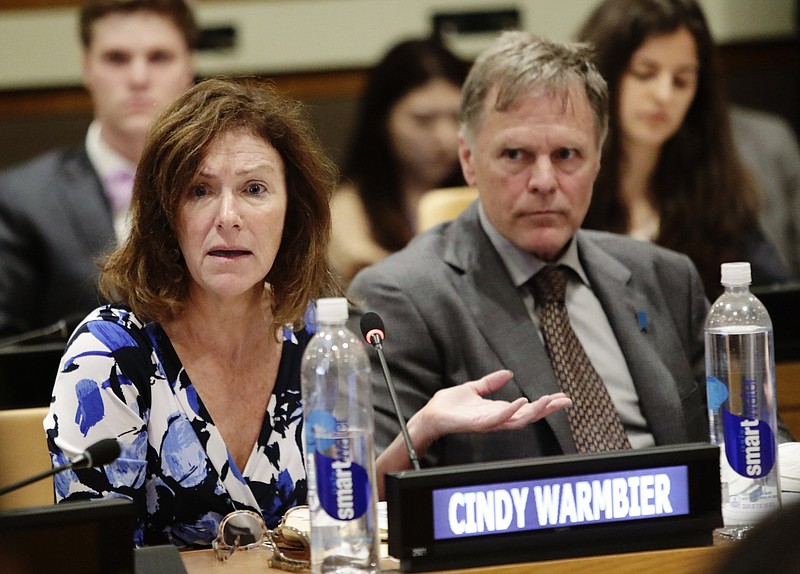A court in New York has ruled that the family of deceased American student Otto Warmbier, who was detained in the secretive state, be awarded more than $240,000 to be seized from North Korean assets.
Warmbier, a University of Virginia student, was 21 years old when he traveled in 2015 with a tourism group to Pyongyang on his way to a study-abroad program in Hong Kong. He was arrested at Pyongyang's airport at the end of his trip and later convicted on charges stemming from pulling down a propaganda poster in a hotel in the early hours of Jan. 1, 2016 -- considered a "hostile act against the state" by North Korea.
A month later, a tearful Warmbier appeared at an orchestrated news conference in North Korea and "confessed" to the "preplanned" crime of trying to steal a propaganda sign during the trip. He fell into a coma for unknown reasons in March 2016, on the same night he was sentenced to 15 years in prison with hard labor.
After diplomatic wrangling by the Trump administration, he was evacuated to the United States in 2017 while still in a coma and died six days later at a Cincinnati hospital.
Warmbier's brain damage while in North Korea and subsequent death caused widespread shock in the United States at the time.
His father, Fred Warmbier, accused North Korea of beating and torturing his son in detention, a claim Pyongyang denied. North Korea insisted that Otto Warmbier became sick after eating pork and spinach and that he had a severe allergic reaction to sedatives he was given.
His parents sued North Korea over their son's death. In 2018, Judge Beryl A. Howell of the U.S. District Court for the District of Columbia ruled that North Korea was liable for $501 million in damages, adding that the award was "appropriate to punish and deter North Korea" for the "torture, hostage taking and extrajudicial killing of Otto Warmbier."
North Korea ignored the order.
The Northern District Court of New York approved on Jan. 12 a seizure of funds from the country's Korea Kwangson Banking Corp., in an "unopposed motion" after both North Korea and the bank failed to respond to court orders and notices. The latest missed deadline was Jan. 10, the court documents showed.
"Neither North Korea nor KKBC has appeared in this action or filed any objections or responses to the petition for turnover within the applicable time periods," Judge Lawrence Kahn said in the order.
The court found that the bank was an "agent" of the North Korean state and directed New York's Office of the State Comptroller to turn over the funds in its possession to Otto Warmbier's estate "on a final basis."
The New York court's ruling comes as plaintiffs in South Korea and Japan are pursuing similar legal avenues to hold North Korea liable for damages.
While it is an uphill battle to recoup damages from North Korea through legal systems outside the country, advocates say the lawsuits are an effective tool to raise awareness about the authoritarian nation's record on human rights.
"It generally makes life a little more difficult for Kim Jong Un and other leaders in North Korea. Some justice is probably better than none," said Ethan Hee-Seok Shin, a legal analyst with the Transitional Justice Working Group, a Seoul-based nongovernmental organization founded by human rights advocates.
"Having these civil lawsuits and being able to actually have these punitive damages or other financial penalties imposed on North Korea from a human rights angle, I think that's pretty important," Shin said.
Donald Trump, who became the first sitting U.S. president to set foot in the isolated state in 2019, caused consternation when he said he believed Kim's claims that he did not know about the American student's treatment.
"I don't believe he would have allowed that to happen," Trump said in Hanoi after his second summit with Kim. "He tells me he didn't know about it, and I take him at his word."
He added that he had spoken to Kim about the death of Warmbier and that Kim "feels badly about it."
Information for this article was contributed by Min Joo Kim of The Washington Post.
